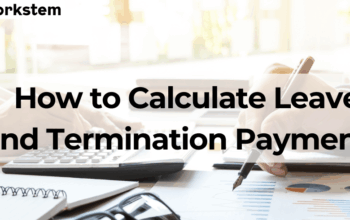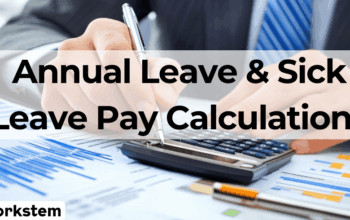Staying compliant with the Building and Construction Award (MA000020) is not just a HR box to tick – mistakes in paying your workers correctly can lead to massive back-pay bills and even fines exceeding $100,000. Unfortunately, compliance errors are common in the construction industry. In this article, we’ll cover the top 5 compliance mistakes companies make under the Building & Construction Award, and how to avoid them. Each mistake is drawn from real scenarios that have tripped up employers, sometimes costing them six-figure sums in back wages and penalties.
Compliance with the Award is achievable with some care and the right tools. Let’s dive into what not to do – and how to get it right.
Mistake 1: Misclassifying Employees (Wrong Award or Level)
One costly error is simply getting the Award or classification wrong. This happens when companies either misclassify the role (assign the wrong level under the Award) or assume the Award doesn’t apply when it actually does. For example, treating a carpenter or plant operator as a lower-level labourer to pay less will undercut their minimum rate. Or worse, assuming someone is not covered by the Award at all (perhaps thinking they’re a contractor when legally they’re an employee) – a recipe for underpayment.
Why it’s costly: If an employee is misclassified at a lower pay level than their actual duties, all those underpaid dollars accumulate. Over years, this can mean tens of thousands in back-pay owed if audited. If it’s deemed deliberate or reckless, Fair Work can impose penalties on top of repaying wages. Companies have been hit with big fines for not paying the correct “Building and Construction General On-site Award 2020” rates when they should. In one case, a Sydney construction firm neglected to pay a casual under the Award rates; the Fair Work Ombudsman took them to court seeking a $46,950 penalty just for one worker’s underpayment!
Mistake 2: Not Keeping Up with Award Wage Increases
Another common pitfall is failing to update pay rates when the Award rates increase each year. The Building & Construction Award rates typically go up around July each year after the Annual Wage Review – for instance, a 3.5% increase took effect from 1 July 2025. If you’re still paying 2024 rates, you’re underpaying everyone since the increase.
Why it’s costly: Even a small percentage increase, if overlooked, adds up across many employees and many pay periods. An employer who “forgets” to raise wages could owe a year’s worth of 3–5% differences to every affected worker. That easily crosses into the tens of thousands in back-pay, especially for larger crews. We’ve seen companies end up owing $100k+ after a few years of missing annual raises or not applying new Award versions. The Fair Work Ombudsman may also impose fines for each breach (each underpaid employee can count as a separate breach).
Mistake 3: Ignoring Overtime and Penalty Rate Rules
Construction projects often involve early starts, late finishes, or weekend work – but some companies fail to pay the proper overtime/penalty rates for those hours. For instance, an employee might work a 10-hour day, but the employer pays all 10 hours at the base rate, ignoring that 2 of those hours should be at time-and-a-half and beyond 2 hours at double time per the Award. Or they schedule work on a Saturday or Sunday but pay as if it were a normal weekday.
Why it’s costly: Those penalty rate differences are substantial – e.g. Saturday can be 150–200% of wages, Sundays 200%, public holidays 250%. Unpaid overtime premiums accumulate quickly. This is a classic form of underpayment that employees notice – it often leads directly to complaints or “letters of demand” for unpaid wages. Once the Ombudsman investigates, you’ll be on the hook for all missing penalties, plus potentially hefty fines. Even a single worker’s claim (say, unpaid overtime over months) can lead to significant back-pay and a penalty for the employer – for example, failing to pay overtime to just one young labourer resulted in a $5,328 fine in another case.
The Cost of Non-Compliance: Real Examples
To underscore how serious this is, consider a real example: a construction company in Sydney ignored a compliance notice to back-pay a worker’s wages. The result? The Federal Court is now seeking a $46,950 penalty against the company, on top of ordering the wages be paid. In another case, a company that shorted a 15-year-old apprentice only a small amount ended up fined over $5,000. These cases show that even seemingly minor underpayments can snowball – not just in money to repay, but in legal penalties and reputation damage.
The mistakes above – misclassification, outdated rates, unpaid penalties, missed allowances, apprentice underpayments – are often at the root of such cases. They are avoidable. The Fair Work Ombudsman has made it clear that claiming ignorance or saying “it was an accident” is not a defense for underpayments. Every business is expected to be proactive in compliance.
How to Stay Compliant (and Sleep Better at Night)
After reviewing the top 5 mistakes, the solutions might be apparent: know your Award, use tools, and don’t cut corners. Specifically:
- Educate your payroll staff or bookkeeper: They should be intimately familiar with the Building & Construction Award or have access to someone who is. Regular training or updates when the Award changes are invaluable.
- Use modern payroll software with Award interpretation: These systems can automatically apply the correct rates, penalties, and allowances as per the Award. This drastically reduces manual errors. As one expert puts it, payroll mistakes often happen when systems fail or are too manual. Automation is your friend.
- Perform regular audits: Periodically review a sample of pay slips against the Award requirements. Are you paying the Saturday rates correctly? Did you bump up Joe’s pay when he moved to 2nd-year apprentice? An internal audit can catch issues before an inspector or employee complaint does.
- Keep records and communication: Maintain good records of hours worked, classifications, and any advice you’ve relied on. If an employee raises a concern (“I think I was underpaid last week”), address it immediately – don’t ignore it. Ignoring warnings or complaints is often what turns a small issue into a big legal problem.
- Stay updated: Subscribe to Fair Work’s email updates or industry newsletters. Changes in laws (like increased penalties for wage theft in some states) and annual wage increases will be communicated. Compliance is an ongoing task, not a set-and-forget.
By avoiding these common mistakes, you won’t just save money by not paying penalties – you’ll also build trust with your employees. Paying people correctly and on time boosts morale and productivity, and protects your company’s reputation. In the high-risk construction industry, that stability is gold.
How Workstem Simplifies Building and Construction Award Compliance
Simplify award interpretation and payroll processing with Workstem, the all-in-one workforce management & payroll software designed for every industry. Our system supports 122+ modern awards & 34 EAs, including the Hospitality Industry Award 2025, and keeps you up-to-date with changes in wage rates, penalty rates, and overtime rules.
Managing payroll under the Hospitality Industry Award 2025 can be complex. Workstem’s workforce management software ensures:
- Accurate award interpretation
- Automated penalty rates & overtime calculations
- Compliant payslips & record-keeping
- Seamless integrations with Xero, NetSuite, and more
Choose from our Standard or Advanced plan to suit your business needs, and stay Fair Work compliant with confidence.
Book a free demo with our payroll experts and experience how Workstem can streamline your payroll and workforce operations.
FAQs About the Building & Construction Industry Award
Q1: What are the top compliance mistakes?
A1: Misclassifying employees, missing annual wage increases, ignoring overtime/penalty rules, overlooking allowances, and underpaying apprentices.
Q2: How can mistakes exceed $100k?
A2: Small daily underpayments across multiple workers or years quickly accumulate, plus potential fines and interest.
Q3: What penalties apply for non-compliance?
A3: You must back-pay owed wages and may face civil penalties up to $69,000 per breach for companies.
Q4: How do I ensure compliance?
A4: Use up-to-date payroll software, train staff on Award rules, perform regular audits, and address pay queries immediately.
Q5: Is “I didn’t know” a defense?
A5: Definitely not! employers are expected to know or seek advice on their Award obligations.
Read More:
Building and Construction General On-site Award Guide [MA000020]
Building and Construction Award
How to Avoid Fair Work Penalties for Unpaid Wages in Construction








